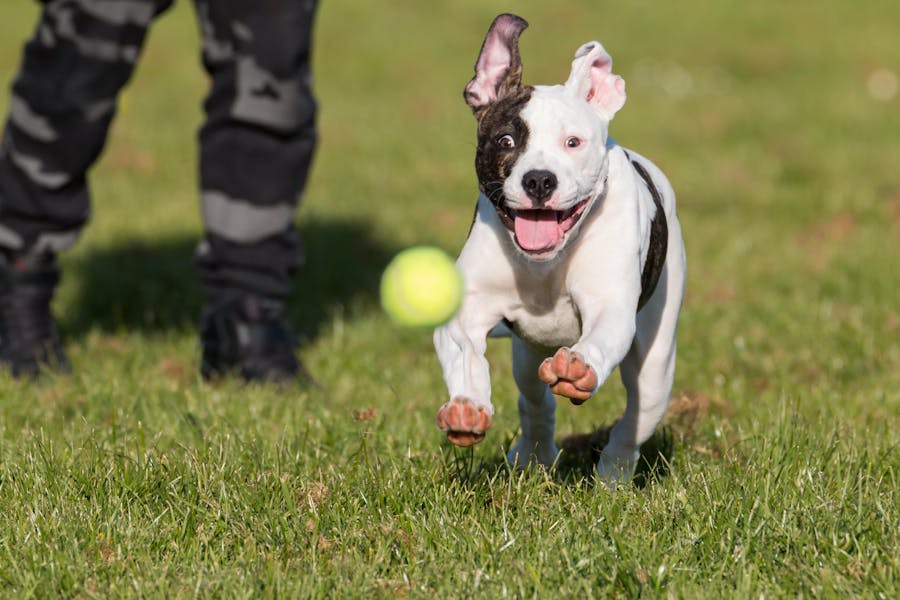For many dog owners, balancing busy schedules with consistent training can feel overwhelming. Life gets in the way, routines shift, and behavioral progress stalls. That’s why more owners are turning to structured dog training retreats in Salt Lake City, where professional trainers work intensively with dogs in a focused, supportive environment. These retreats combine expert handling, clear communication, and daily consistency to create lasting change. Whether your goal is better obedience, improved manners, or addressing specific behavioral challenges, training retreats offer a path toward a calmer, more confident dog.
What Are Dog Training Retreats?
Dog training retreats, often called board-and-train programs, are immersive experiences where dogs stay at a training facility for a set period, usually one to four weeks. During that time, trainers work with the dog multiple times a day, focusing on structure, obedience, and social behavior.
Unlike group classes or private lessons, retreats provide uninterrupted attention and a consistent routine. This helps dogs learn faster, retain skills, and practice calm behavior in various environments. The goal is to build a reliable foundation that owners can maintain once the dog returns home.
Why Structure Matters in Training
Structure gives dogs a sense of clarity and security. When dogs know what to expect and what’s expected of them, they relax and perform better. Structured training teaches boundaries, reinforces good habits, and prevents confusion or anxiety.
At a professional retreat, the structure includes:
- Daily routines that balance work, play, and rest
- Clear communication using consistent cues and expectations
- Regular reinforcement that rewards calm and focused behavior
- Real-world scenarios to teach dogs how to behave in public places
- Controlled socialization with other dogs to improve confidence and manners
This level of repetition and consistency is difficult to maintain in busy households, which is why structured programs can be so transformative.
Benefits of a Dog Training Retreat
1. Faster, More Reliable Results
Because training happens several times a day, dogs progress faster than in traditional weekly sessions. The controlled environment allows trainers to address unwanted behaviors immediately and reinforce the right habits consistently.
2. Personalized Attention
Each dog receives a customized training plan based on age, temperament, and goals. Whether it’s leash manners, recall, or behavioral rehabilitation, trainers tailor the program to meet specific needs.
3. Real-Life Training Scenarios
Dogs practice commands not just indoors but also in outdoor settings, such as parks, and even around distractions. This helps ensure obedience transfers to real-world environments where dogs often struggle most.
4. Stress-Free for Owners
Owners get a break from the stress of constant corrections and guesswork. When the dog returns home, the trainers provide a detailed handover session that shows exactly how to maintain new behaviors and commands.
5. Long-Term Transformation
The structured environment promotes lasting change, not temporary fixes. With proper follow-up and consistency at home, dogs retain their training and continue to thrive.
Who Can Benefit from a Training Retreat?
Training retreats aren’t just for dogs with severe behavior issues. They benefit all types of dogs, including:
- Puppies needing early obedience and socialization
- Rescue dogs adjusting to a new environment or overcoming past trauma
- High-energy breeds that require structured activity and mental focus
- Adolescent dogs testing boundaries or ignoring cues
- Older dogs need gentle reinforcement and improved manners
The controlled setting and professional guidance give every dog, regardless of age or history, a chance to reset and learn at their own pace.
The Training Process Explained
Here’s what typically happens during a structured retreat:
- Assessment: The program begins with a consultation to discuss goals and evaluate your dog’s current behavior.
- Customized Plan: Trainers design a schedule that balances obedience, socialization, and enrichment.
- Daily Sessions: Dogs train multiple times per day, focusing on core skills like sit, stay, heel, recall, and calmness.
- Exposure Training: Controlled exposure to distractions, such as traffic, other dogs, and new environments, teaches real-world discipline.
- Play and Rest: Downtime helps dogs process lessons and stay emotionally balanced.
- Owner Transfer Session: When training ends, owners receive hands-on instruction to reinforce behaviors at home.
This structure ensures the dog not only learns commands but also builds lasting discipline and confidence.
The Importance of Owner Follow-Through
While retreats set the foundation, long-term success depends on the owner’s commitment. Trainers teach owners how to maintain structure, provide consistent reinforcement, and prevent regression.
Follow-up lessons and continued practice at home are key. Dogs thrive when their new routines continue after returning to their familiar environments. Consistency in tone, timing, and rules keeps progress steady.
Real-World Example
Consider a young Australian Shepherd named Luna, known for pulling on the leash and reacting to other dogs during walks. Her owners enrolled her in a three-week structured retreat. During her stay, trainers worked on focus, impulse control, and calm walking using repetition and positive reinforcement.
When Luna returned home, she was calmer, responsive, and confident. Her owners learned how to maintain her new behavior and continued practicing daily routines. Within a month, once stressful walks became enjoyable family outings.
This type of transformation is common when structure, expertise, and follow-through come together.
Why Choose a Structured Program in Salt Lake City
Salt Lake City’s active lifestyle and access to parks, trails, and open spaces make it ideal for well-trained, social dogs. Local retreats take advantage of these environments to prepare dogs for everyday life.
The city’s top trainers use a mix of proven techniques and personalized care, focusing on mental stimulation and emotional balance as much as obedience. Their goal is to create adaptable dogs that handle new situations confidently.
Common Behaviors Addressed at Retreats
- Leash pulling and poor recall
- Jumping on people
- Reactivity to dogs or noises
- Excessive barking or chewing
- Anxiety and overexcitement
- Boundary testing and disobedience
By addressing these issues in a structured environment, trainers help dogs unlearn bad habits and develop calm, reliable behavior.
Maintaining Results at Home
Once your dog graduates, you’ll receive guidance on how to continue training. This might include:
- Short daily practice sessions
- Consistent rules and boundaries
- Proper correction and praise timing
- Enrichment activities for ongoing stimulation
- Regular refresh sessions or advanced classes
By reinforcing what was learned at the retreat, you ensure your dog’s success lasts a lifetime.
The Long-Term Impact
A well-trained dog improves every aspect of daily life. From smoother walks to calmer social outings, obedience creates harmony in the household. Structured training gives dogs the confidence to navigate their world and owners the assurance that their companions will respond predictably.
The benefits extend beyond control. They enhance trust, strengthen the human-animal bond, and bring peace of mind.
Conclusion
Structured training is one of the most effective ways to achieve lasting behavioral change. Through structured dog training retreats in Salt Lake City, dogs receive the focus, repetition, and guidance they need to reach their full potential.
With professional trainers providing daily structure and owners reinforcing it at home, even challenging behaviors can be replaced with calm obedience and confidence. The result is a stronger connection, better communication, and a happier life for both you and your dog.










